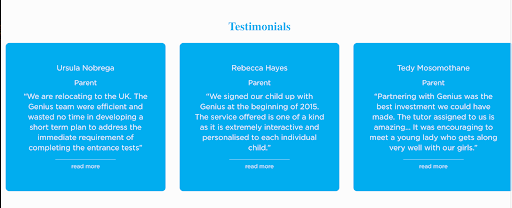Relocating to another country is an exceptionally stressful situation… Relocating to another country is an exceptionally stressful situation. Not only must you navigate unfamiliar currency, tax and legal systems, and cultural norms, but you also need to think about the potential effects on your child.
Changing schools within the same curriculum and same country itself presents many challenges in and of itself. Schools move at different paces and cover different sections as determined by the Head of Department, particularly in the IEB. So what happens when you not only change the timeline but change the entire context?
The short and honest answer is your child will struggle. Understanding the differences between the South African and American school systems is crucial for a transition that is as smooth as possible.
Understanding the key differences between South African and American curricula
The American education system differs significantly from the South African system in terms of curriculum structure, teaching methodologies, assessment styles, and grading systems.
Additionally, the subjects offered and the depth of content may vary, necessitating a thorough understanding of these differences to prepare your child effectively.
Unlike in South Africa, all of your child’s high school results (Grades 9, 10, 11, or 12) are accounted for when applying to colleges.
In the USA, continuous assessment plays a significant role, and students are often evaluated through a combination of assignments, projects, and exams throughout the year. The change is intense and quite overwhelming for a child or teenager.
Minimising the amount of change
The fact that children and teenagers tend to be resilient cannot be contested. Young people have an uncanny way of adapting to their environments. The issue as it pertains to relocating a child abroad is that the amount of change experienced is massive, and children can experience high levels of uncertainty and change-related stress.
It is for this reason that we have found one of the best ways to help a child cope academically after an international move is to minimise the gap between their current and new curriculum.
Catch up on the new academic syllabus before you go
Once a child knows what to expect and bridges the differential between the two syllabi, the uncertainty associated with that particular change gets minimised. If the child covers the work before they go, academics will not be another aspect of their lives that changes completely with no guidebook on how to survive the change.
Is your child in a Cambridge International School?
If your child is currently in a Cambridge International School, they could possibly continue with this, with no progress lost, as there are 427 CIE schools in the US.
What can parents do to help make the transition smooth?
1. Assess your child’s current academic standing
Before the move, it’s essential to evaluate your child’s current academic level in relation to the American education standards. The Common Core State Standards (CCSS) provide a clear outline of what students are expected to learn at each grade level in mathematics and English language arts. By comparing your child’s current knowledge and skills to these standards, you can identify potential gaps and areas that may require additional focus.
2. Have your child take a Common Core Standards Test
By having your child take the Common Core Standards Test, you can gain an understanding of the extent of the academic gap your child will face. In doing a gap analysis, you can find the areas where your child is lagging, and a catch-up program can be created.
3. Implement a tailored catch-up program
Once you’ve identified the areas where your child may need support, consider implementing a tailored catch-up program. This could involve enrolling your child in supplementary tutoring sessions focused on specific subjects, utilising online educational resources aligned with the CCSS, or encouraging independent study to cover unfamiliar topics. Addressing these gaps proactively can boost your child’s confidence and readiness for the new academic environment.
The Genius Premium Tuition Experience
In the many relocation assessments I have done, I have found that Maths and English are usually the two subjects where the biggest gaps exist, followed closely by science. Science, unfortunately, does not follow the common core standards and need to find the state-specific outline for the subject. Some states have standardised end of the year tests in science that can be a useful metric, such as the STAAR exams in Texas and the CAASPP exams in California.
If your child is in high school, however, science will be one of the most significant gaps as Physics and Chemistry are taught as two separate subjects and, thus, cover a lot more content than our combined subject of Physical Sciences.
Find out more about the unique way that Genius operates – unlike any other tutoring service
Consider additional languages
Furthermore, you need to consider the first additional language your child will be taking. Unfortunately, none of the African languages are offered in the US and so your child will have to take a language they have likely had no exposure to prior.
Different states and districts offer different languages. The common languages that are, however, offered include French, Spanish, and German. A good idea would be to have your child sign up for a language learning app (such as Duolingo) as soon as the decision has been made to move. Most of these apps require less than five minutes a day and will offer extraordinary benefits.
Navigating the American school system
Now it’s time to familiarise yourself with the structure of the American school system, including grade levels, school hours, extracurricular offerings, and parent-teacher communication practices.
Understanding these aspects will help you and your child adjust more effectively. Engage with school administrators and teachers early on to gain insights into the school’s expectations and resources available for new students.
Support your child’s social and emotional adjustment
Transitioning to a new school in a different country can be emotionally challenging for children. Encourage open communication, allowing your child to express their feelings and concerns about the move. Involve them in the decision-making process, such as selecting extracurricular activities or personalising their new study space, to give them a sense of control and ownership.
Additionally, consider seeking support from school counsellors or child psychologists if needed.
Use extracurricular activities in integration
Participating in extracurricular activities can significantly aid your child’s social integration and help them build new friendships. Encourage your child to explore clubs, sports teams, or arts programs that align with their interests. These activities provide a platform for them to connect with peers, develop new skills, and feel more connected to their new school community.
Monitoring progress and seeking additional support
After the move, closely monitor your child’s academic progress and overall well-being. Maintain regular communication with their teachers to stay informed about their performance and any areas of concern. If your child struggles with certain subjects or aspects of the curriculum, continue with the tailor support program.
Play a proactive role in your child’s transition
Relocating to the USA presents both exciting opportunities and challenges for your child’s education. By proactively understanding the differences between educational systems, assessing and addressing curriculum gaps, and providing robust emotional and social support, you can facilitate a smoother transition and set the foundation for your child’s academic success in their new environment.
How can Genius assist?
Genius has been supplementing the school system and preparing students for US, local, and other international universities for over 28 years.
We are not just a tutoring agency; our team of tutors are in-house instructors who have been through a very rigorous vetting and training programme, and we work very closely with them, the school, and your family throughout the course to ensure a great result.
What do parents say?

You can book an assessment by heading over to our contact page, or reaching us directly on hello@geniuspremium.com +27 11 467 9884.



